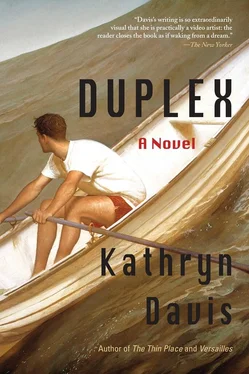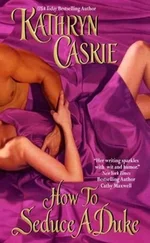Mary Mary Mary she heard and she knew she’d heard that same voice before. The white wall in front of her had something that looked just like a door in it and the thing that looked like a door began to shake and disappear. There was no salt in the air behind it or sand on the floor like there was in her house. Carefully Mary made her way onto all fours and across what remained of the material world, but as far as she could tell there wasn’t much of it left. She let her flesh down carefully, her face pointing straight ahead. I’m not ready to die yet, she was thinking.
Something pulled her through from the other side.
EDDIE WAS AN OLD MAN NOW. HIS HAIR WAS WHITE and his teeth false, the youthful promise of his career all but forgotten. The sorcerer had sold the Rockets to a company run by his daughter and the team was once again unbeatable, the company’s business mysterious yet apparently dedicated to the pursuit of human immortality through the introduction of better materials into the finished product. He had also finally been persuaded to sell the family estate to the developer who built a long-awaited retirement community there, including the nursing home where Eddie’s mother and father spent the last years of their lives. No one knew what the sorcerer planned to do with the fortune he made from these transactions; ever since his wife left him it was said that he spent most of his time brooding in the water tower.
As Eddie walked along the neat brick pathways of Woodard Village, he tried to picture the way the estate used to look — he seemed to remember a large ornamental pond where the buildings now stood. The day was mild, the air sweet but with a smell of autumn in it, of burning leaves, and in the blue sky he could see a small wavering V of geese making their way south, hear the plaintive far-off sound of their honking. Mary had always made fun of him, of the way the end of summer made him sad — her eyes would mock him, lovingly. He remembered how she would sit on her porch stoop with one of the other girls, the two of them apparently in deep negotiation for some card, a dog or a horse or what the girls all referred to as a “scene,” meaning a painting from the Romantic era showing a world where beautiful places like the Woodard Estate had once existed. How innocent the girls’ trades were, Eddie thought — he knew so little about it. Mary’s head would be bent over the cigar box, her shoulders hunched, but he could tell she was more focused on him than she was on anything. No one or nothing else in his life had given him that same degree of attention.
Now an orderly approached on the path, pushing an old woman toward him in a wheel chair. The orderly was tall and heavy set and there was something about him that gave Eddie the feeling it was someone he knew. The old woman was just an old woman; she was wearing the kind of sunglasses with side shields a person needed after cataract surgery, and her long silver hair had been put up in a bun. “Where am I?” she kept asking the orderly; she seemed agitated. “What am I doing here?”
“Don’t worry, gorgeous,” the orderly replied. “You’re right where you’re supposed to be.”
“Well, then,” said the old woman. She seemed relieved, relaxing back into her chair only to lean forward once again at Eddie’s approach. “Are you coming to lunch?” she asked. Her voice wavered slightly, the way a voice will after an arduous journey during which the speaker has turned from a woman to a beam of light and back again. “Today is Friday,” she added, clapping together the swollen joints of her hands. “Swordfish!”
Eddie was about to say no, that while the place certainly seemed nice enough, he wasn’t a resident. But then he was filled with a sense of terror. He felt cold; it suddenly came to him that not all that long ago he had been a young man, and that like his fellow human beings he’d always relied on meaninglessly small units for the measurement of time.
“Swordfish? Are you sure?” The orderly stopped dead in his tracks. “Swordfish mate for life,” he pointed out, giving Eddie a look.
It was then that it came to him — this was Downie, his old friend from the ballpark. Not that they’d had all that much to do with one another. Eddie had been a star and Downie a mascot. But even so, Eddie had always felt like he and Downie had a special relationship, that Downie was keeping an extra-sharp eye on him, his vigilance having its basis in something that had nothing to do with baseball.
The three of them made their slow way along an avenue of shade trees, the leaves casting moving shadows across their faces. Eventually they found themselves in the large main building. “Whatever you do,” the old woman told Downie, laughing, “don’t push me down there.” She was pointing toward the blue hallway that led to the level-three nursing home; when you entered that hallway you never came out again except as a cadaver.
“I wouldn’t dream of it,” said Downie. He gave Eddie another look before turning the wheel chair, and the next thing Eddie knew the old woman and Downie had suddenly disappeared around a bend, leaving him alone in the corridor.
Eddie was sure the people who ran Woodard Village did the best they could but there was no masking the smell that traveled up from the part of the building no one wanted to think about and into the part of the building where he was now standing. The smell was composed of night soil blended with the perfume Mary had told him was called Friendship’s Garden that his old teacher used to apply liberally. Miss Vicks! He hadn’t thought of her in years. She’d done the best she could with him, he had to hand it to her. He remembered being rowed across the ornamental pond in a blue boat by a girl with fireflies in her hair as all the while Miss Vicks stood there keeping watch on the shore, her little red dachshund at her feet.
It was hard for Eddie to know which way to go. The corridor he was standing in extended to the right and the left for several yards before branching off in several directions. The wall on his right consisted mostly of windows facing out onto a courtyard filled with plants with very large leaves and a fountain; the wall to his left was hung with paintings. A pot of flowers, a sad-eyed child, a tilting house, a seascape — each painting was labeled with the artist’s name and a brief description of how it had come to be painted. “I used to spend summers by the sea when I was very young,” wrote the painter of the seascape, “but now I have to rely on my memories.” Mary had made fun of a similar painting the night of the prom — this one even included the same body of water that looked nothing like water. He thought of the way the small of her back had felt under his hand, the way the knobs of her spine moved as they danced. He’d had her whole life in his hands — her whole life, and then nothing.
For a while he kept passing old men and women, most of them propelling themselves forward in wheel chairs or pushing walkers; only a few of the residents walked unassisted or with the help of a cane. Music began issuing from hidden speakers near the ceiling, occasionally interrupted by a voice announcing an activity or a birthday.
At some point Eddie found himself sitting in the dining room, staring into space. In one hand he was holding a yellow plastic toy of some kind; the other was resting flat on the arm of his chair. The dining room was empty at this hour. It was the worst hour of the day, the one that came after the big noonday meal was finished and the tables had been cleared and set for supper, the sounds from the kitchen growing harder to hear as if everything alive and capable of meaningful action had moved farther off like a population in retreat after a costly and decisive battle. There were no windows in the room; until the lights got turned on for supper there was almost no light in the room, except the light that came in off the hallway. Soon there would be no sound in the room, either, aside from the sound of Eddie drumming his fingers on the arm of his chair the way he used to when he was young and trying to think. Thought had never come easily to Eddie — he had always liked exercising his body better than exercising his mind.
Читать дальше












